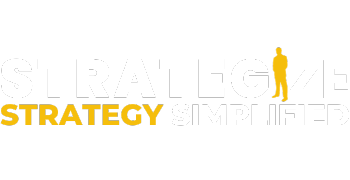Running a business can be exhilarating, but it also comes with its fair share of challenges and overwhelm. As an entrepreneur, it’s crucial to navigate these hurdles effectively to achieve sustainable growth and success. In this blog, we will explore ten powerful strategies that can help you overcome business overwhelm and pave the way for remarkable growth.
Prioritize and Delegate: One of the key drivers of overwhelm is trying to do everything yourself. Learn to prioritize tasks based on their impact and delegate responsibilities to capable team members or outsourcing partners.
Focus on activities that align with your core strengths and contribute most to your business growth. When it comes to business overwhelm, the temptation to handle every task on your own can quickly become overwhelming. Trying to juggle multiple responsibilities can lead to burnout and hinder your business’s growth potential. That’s why it’s crucial to prioritize tasks and delegate responsibilities to capable team members or outsourcing partners.
Start by identifying the tasks that have the most significant impact on your business’s success. These could be revenue-generating activities, strategic planning, or activities that align with your core competencies. By focusing on these key tasks, you ensure that your time and energy are dedicated to activities that contribute most to your business’s growth.
Next, assess your team’s strengths and skills. Delegate tasks that align with their expertise, enabling them to take ownership and contribute to the overall success of the business. Effective delegation not only lightens your workload but also empowers your team members, fostering a sense of trust, collaboration, and professional development.
When delegating, provide clear instructions and expectations to ensure a smooth handover of responsibilities. Regularly communicate and check in with your team to offer support and guidance, ensuring they have the resources they need to excel in their roles. In addition to delegating within your team, consider outsourcing certain tasks to external partners or freelancers.
Outsourcing allows you to tap into specialized expertise, access a larger talent pool, and free up your time to focus on core business activities. Whether it’s accounting, marketing, or website development, partnering with professionals in specific areas can significantly alleviate your workload and improve overall efficiency.
Remember, effective prioritization and delegation are not about offloading tasks randomly but rather aligning responsibilities with the right people and optimizing your resources. It’s about leveraging the strengths of your team and utilizing external expertise when necessary. By mastering the art of prioritization and delegation, you can not only alleviate overwhelm but also create a collaborative environment that fuels productivity, innovation, and business growth.

Streamline Processes: Identify bottlenecks and inefficiencies in your workflows and streamline processes to increase productivity. Automate repetitive tasks, implement project management tools, and establish clear communication channels to foster efficiency and collaboration.
In the fast-paced world of business, inefficient processes can be a significant source of overwhelm and hinder your growth potential. Streamlining processes is all about identifying bottlenecks and inefficiencies in your workflows and implementing strategies to increase productivity and enhance overall efficiency.
Start by conducting a thorough review of your current workflows. Look for areas where tasks get delayed or where there is a lack of clarity and coordination. These are potential bottlenecks that impede productivity and create unnecessary stress.
Once you’ve identified these bottlenecks, it’s time to implement solutions. One effective approach is to automate repetitive and time-consuming tasks. Utilize technology and tools to automate processes such as data entry, report generation, or customer onboarding. By automating these tasks, you can free up valuable time and resources, allowing you and your team to focus on more strategic and value-added activities.
Another key aspect of streamlining processes is implementing project management tools. These tools provide a centralized platform for planning, tracking, and collaborating on projects. They enable you to assign tasks, set deadlines, and monitor progress in real-time. With clear visibility into project timelines and task dependencies, you can ensure that everyone is on the same page, minimizing delays and miscommunication.
Clear communication channels are also essential for streamlined processes. Establish efficient and transparent communication channels within your team, such as project management software, instant messaging platforms, or regular team meetings. Encourage open and timely communication, ensuring that team members are aware of their responsibilities and can seek assistance or provide updates whenever needed.
Regularly evaluate and refine your processes to continuously improve efficiency. Seek feedback from your team members to identify pain points or areas for improvement. Embrace a culture of continuous improvement, where everyone is encouraged to propose ideas and suggest process optimizations.
Streamlining processes not only increases productivity but also fosters collaboration and innovation within your organization. It reduces the likelihood of errors, improves the quality of deliverables, and enhances customer satisfaction. By eliminating unnecessary steps, reducing manual effort, and enhancing communication, you create a more efficient and harmonious work environment that empowers your team to tackle challenges and achieve business growth with ease.
Remember, streamlining processes is an ongoing effort. Regularly reassess your workflows, embrace new technologies, and adapt to changing business needs. With a commitment to continuous improvement, you can create a streamlined operation that fuels productivity, reduces overwhelm, and positions your business for sustainable growth.

Set Clear Goals: Define clear, specific, and achievable goals for your business. Break them down into actionable steps, and monitor progress regularly. Having a clear direction helps align efforts and minimizes overwhelm by providing a roadmap to success.
Setting clear and well-defined goals is a critical step in overcoming business overwhelm and achieving sustainable growth. It provides a sense of direction and purpose, aligns efforts, and minimizes the feeling of being overwhelmed by breaking down the journey into manageable steps. Here’s how you can effectively define and work towards your business goals:
- Clarity and Specificity: Ensure that your goals are clear, specific, and measurable. Vague goals make it challenging to track progress and determine success. For example, instead of setting a goal to “increase sales,” define it as “increase sales by 20% in the next quarter.” This clarity provides a concrete target and enables you to measure your progress accurately.
- Achievability: While it’s essential to set ambitious goals, they must also be achievable. Unrealistic goals can lead to frustration and demotivation. Evaluate the feasibility of your goals based on available resources, market conditions, and the capabilities of your team. Setting attainable goals allows you to maintain motivation and celebrate milestones along the way.
- Break It Down: Breaking down your goals into actionable steps is crucial for effective implementation. Divide each goal into smaller, manageable tasks that contribute to its achievement. This approach not only makes the goal less overwhelming but also allows you to track progress and identify potential challenges more easily. Each task becomes a building block towards the larger objective.
- Prioritize and Sequencing: Once you have a list of tasks, prioritize them based on their importance and urgency. This helps you allocate resources and focus on activities that have the most significant impact on your goal. Establish a logical sequence, where completing one task naturally leads to the next, creating a roadmap towards your desired outcome.
- Regular Monitoring: Consistently monitor your progress to stay on track and make necessary adjustments. Set milestones and review your achievements at regular intervals. This allows you to celebrate accomplishments, identify areas for improvement, and make informed decisions to overcome obstacles.
- Accountability and Collaboration: Hold yourself and your team accountable for executing the tasks associated with each goal. Assign responsibilities, establish deadlines, and encourage open communication and collaboration. By fostering a sense of ownership and collective responsibility, you can drive progress and ensure everyone is working towards the shared vision.
- Adaptation and Flexibility: Recognize that goals and circumstances can change over time. Remain adaptable and flexible, adjusting your goals and action plans as needed. As you gain new insights and market dynamics shift, be open to revising your strategies while keeping the end objective in mind.
By defining clear, specific, and achievable goals, breaking them down into actionable steps, and monitoring progress regularly, you create a roadmap to success. This clarity and direction empower you to stay focused, minimize overwhelm, and make steady progress towards your business objectives. Remember to celebrate milestones along the way, as each achievement brings you closer to your ultimate vision.

Focus on Core Competencies
Identify your core competencies and specialize in what you do best. Avoid spreading yourself too thin by diversifying into areas outside your expertise. Staying focused allows you to deliver exceptional value and reduce overwhelm.
In today’s business landscape, it’s easy to fall into the trap of trying to be everything to everyone. However, spreading yourself too thin can lead to overwhelm and diluted results. To overcome this challenge, it’s crucial to identify your core competencies and specialize in what you do best. Here’s why staying focused is essential and how it can help you deliver exceptional value while reducing overwhelm:
- Identify Core Competencies: Start by identifying the areas where you and your team excel and have a competitive advantage. These are your core competencies — the unique skills, knowledge, and capabilities that set you apart from your competitors. It could be a specific industry expertise, a particular service offering, or a distinctive approach to problem-solving. By recognizing your core competencies, you can leverage them to deliver outstanding results.
- Specialize and Differentiate: Once you’ve identified your core competencies, focus your efforts on specializing and becoming the go-to expert in those areas. Concentrate on developing deep expertise and refining your skills within your niche. This specialization allows you to differentiate yourself from competitors and position yourself as a trusted authority. By offering specialized services, you attract clients who specifically seek your expertise, leading to higher-quality projects and increased client satisfaction.
- Deliver Exceptional Value: By staying focused on your core competencies, you can dedicate your time, resources, and energy to delivering exceptional value to your clients. Since you have a deep understanding of your specialized area, you can provide customized solutions, tailor-made strategies, and insightful advice. This focused approach enables you to go above and beyond client expectations, resulting in stronger client relationships and a reputation for excellence.
- Minimize Overwhelm: Spreading yourself too thin by diversifying into areas outside your expertise can lead to overwhelm. It becomes challenging to keep up with the ever-changing demands and nuances of multiple industries or service offerings. By staying focused, you can streamline your efforts, optimize your resources, and maintain a manageable workload. This focused approach allows you to provide undivided attention and maintain a high level of quality in your work.
- Collaborate and Outsource: While it’s crucial to specialize, it’s also essential to recognize when certain tasks or projects fall outside your expertise. In such cases, consider collaborating with strategic partners or outsourcing to experts in those specific areas. This way, you can maintain your focus on your core competencies while ensuring clients receive comprehensive solutions that meet their needs.
By identifying your core competencies, specializing in what you do best, and avoiding the temptation to diversify too broadly, you position yourself for success. Staying focused enables you to deliver exceptional value, build a strong reputation, and reduce overwhelm. Embrace your strengths, seek collaborations where needed, and continuously refine your expertise within your chosen niche. This focused approach will not only drive business growth but also contribute to your overall professional fulfillment.

Celebrate Milestones:
Acknowledge and celebrate your achievements along the way. Recognizing milestones boosts morale and motivates you to continue pushing forward. Celebrations also foster a positive company culture and inspire your team to strive for excellence.
In the fast-paced world of business, it’s easy to get caught up in the constant pursuit of goals without taking the time to acknowledge and celebrate the achievements along the way. However, recognizing milestones and celebrating accomplishments is crucial for maintaining morale, motivation, and fostering a positive company culture. Here’s why it’s essential to acknowledge achievements and how celebrations can benefit your team and business:
- Boost Morale and Motivation: Acknowledging achievements boosts morale by providing validation and recognition for the hard work and dedication put into reaching goals. It gives team members a sense of pride and satisfaction in their accomplishments, motivating them to continue pushing forward. When individuals feel valued and appreciated, they are more likely to remain engaged, dedicated, and motivated to achieve even greater success.
- Foster a Positive Company Culture: Celebrating achievements contributes to the development of a positive company culture. It creates an environment where accomplishments are acknowledged and celebrated, fostering a sense of camaraderie, teamwork, and shared success. When team members witness their colleagues being recognized, it creates a supportive and uplifting atmosphere, encouraging collaboration, innovation, and a collective drive for excellence.
- Inspire Continuous Improvement: Celebrating achievements can serve as a catalyst for continuous improvement. When team members witness their own or their colleagues’ successes being celebrated, it ignites a desire to strive for excellence and surpass previous accomplishments. Celebrations become opportunities for reflection and learning, inspiring individuals to set new goals, embrace challenges, and explore new avenues for growth.
- Strengthen Team Bonds: Celebrations provide a platform for team members to come together and share in the joy of achievements. Whether it’s a team lunch, a recognition ceremony, or a virtual celebration, these shared experiences foster stronger team bonds. They create opportunities for collaboration, communication, and the building of meaningful relationships, leading to increased trust, synergy, and overall team effectiveness.
- Enhance Employee Retention and Satisfaction: A culture that celebrates achievements significantly contributes to employee satisfaction and retention. When individuals feel valued and recognized for their contributions, they are more likely to remain loyal to the organization and actively contribute to its success. Celebrations create a positive work environment that promotes employee well-being, job satisfaction, and a sense of belonging.
To effectively acknowledge achievements and celebrate milestones, consider implementing regular recognition programs, establishing rituals for celebrating successes, and providing rewards or incentives that align with individual and team goals. These celebrations can be as simple as a team email acknowledging accomplishments or as elaborate as an annual gala event. The key is to create meaningful and memorable experiences that recognize and appreciate the efforts and successes of your team.
In conclusion, acknowledging and celebrating achievements along the way is essential for maintaining morale, motivation, and a positive company culture. By recognizing milestones and fostering a culture of celebration, you inspire continuous improvement, strengthen team bonds, and enhance employee satisfaction. Remember, celebrations are not just about the destination but also about appreciating the journey and the remarkable efforts that lead to success.
Overcoming business overwhelm and achieving growth is an ongoing journey. By implementing these ten strategies, you can regain control, navigate challenges with confidence, and unlock the full potential of your business. Remember, growth is not achieved overnight but through consistent effort and a strategic approach. Embrace these strategies, adapt them to your unique circumstances, and watch your business thrive.

